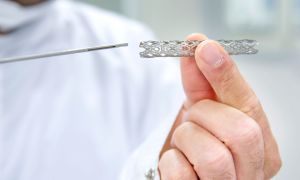Advertisement
Alcohol can, indeed, cause heart rhythm problems in people who drink too much or who are extra-sensitive to the effects of alcohol. It can trigger atrial fibrillation, which can make an implantable cardioverter-defibrillator (ICD) deliver a shock when it shouldn't.
Keep in mind that everyone is different. Some hearts aren't much affected by alcohol. Others are, and for them, even small amounts of alcohol can disturb the rhythm.
The general advice for people who have an ICD is that they can drink alcohol in moderation. For overall health, "in moderation" means no more than two alcoholic drinks a day for a man, no more than one for a woman. But if that amount causes your ICD to deliver inappropriate shocks, then drinking less, or abstaining from alcohol altogether, is the best option.
Keep in mind that everyone is different. Some hearts aren't much affected by alcohol. Others are, and for them, even small amounts of alcohol can disturb the rhythm.
The general advice for people who have an ICD is that they can drink alcohol in moderation. For overall health, "in moderation" means no more than two alcoholic drinks a day for a man, no more than one for a woman. But if that amount causes your ICD to deliver inappropriate shocks, then drinking less, or abstaining from alcohol altogether, is the best option.
Continue Learning about Implantable Medical Devices For The Heart
Important: This content reflects information from various individuals and organizations and may offer alternative or opposing points of view. It should not be used for medical advice, diagnosis or treatment. As always, you should consult with your healthcare provider about your specific health needs.

